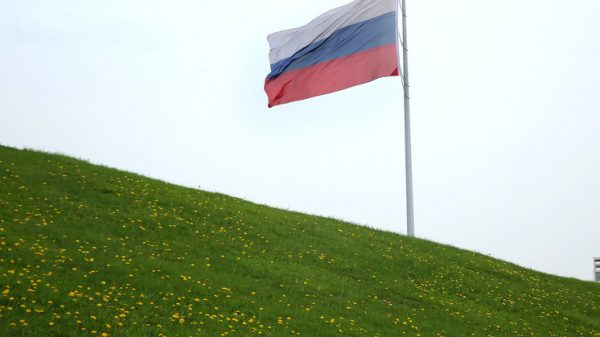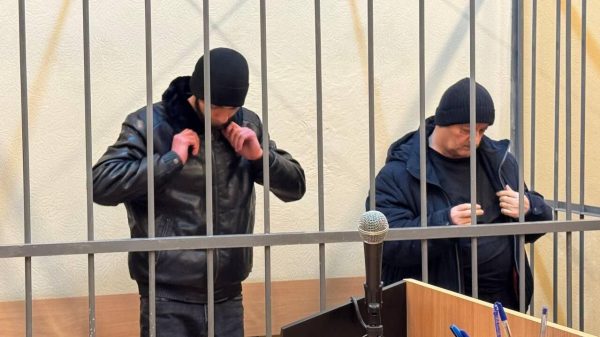
Backpackers often work on farms to be allowed to stay in the country (file photo)
Credit: Kathrin Ziegler/Getty Images
An investigation has been launched into the exploitation of workers in the Australia’s horticultural sector, where backpackers usually make up the vast majority of the workforce.
Former fruit pickers raised allegations of sexual harassment, bullying and severe underpayment, with one claiming she had been paid as little as A$2.50 (GBP 1.40) an hour.
UK nationals make up the largest single group among working holiday visa holders in Australia, roughly 40,000 out of 200,000 each year.
On Thursday the Fair Work Ombudsman’s compliance executive director Steve Ronson told a parliamentary inquiry that an investigation was tracking three “people of interest” linked to allegations raised in an exposé by the Australian Broadcasting Corporation.
The sector has been plagued with problems for years. On Thursday Mr Ronson told the parliamentary committee such scenarios were “very, very familiar” to the Ombudsman and had been for “well over a decade”.
Britons can apply for one-year 417 working holiday visas, but if they wish to stay for a second year, they must complete 88 days of work in a regional area in one of a specified group of industries, including plant and animal cultivation.
In 2019, Haider Malik, 30, who spent three months working as a fruit picker in Australia while backpacking, told local media exploitation of backpackers was “very prevalent” at the farms at which he worked.
Mr Malik said he often worked overtime without being paid, seldom received a minimum wage, and paid up to A$240 in rent for a single bedroom he shared with three other people.
He had payslips as evidence, showing one payment of A$14.50 for 2.5 hours work, and another of A$53 for a six-hour shift.
In that year, 115,000 backpackers were on working holiday visas, comprising up to 80 per cent of the workforce for some harvests, according to the Fresh Produce Alliance.

Working on a farm is a rite of passage for many young travellers (file photo)
Credit: Graham Jepson
Also in 2019, Katherine Stoner from Leicester, who had worked in agriculture in a bid to secure a second visa in Australia, made a documentary entitled "88 Days".
Ms Stoner told Cosmopolitan she was paid less than the legal minimum wage, forced to work long days in the sun with minimal water breaks, given “grotty and grim” accommodation to stay in, and subjected to sexist attitudes from management.
“There are people who had way worse experiences than I did. Lots of girls had stories of farmers harassing them and being totally underpaid… There were stories of people putting down their passports as a deposit in working hostels and then having their passports held ransom. People got stuck in bad situations because they couldn’t leave.”
A 2018 report by the Fair Work Ombudsman found more than half the businesses audited were breaking workplace laws and almost one third had underpaid their workers.
A study by the University of New South Wales and the University of Technology, Sydney, in 2017 found that one third of backpackers made A$12 an hour or less, well below Australia’s legal minimum wage for adults. They surveyed more than 4,300 workers from 107 countries.
Survey respondents also reported other violations that could amount to criminal forced labour, the authors said.
A backpacker from Scotland that same year made just A$98.56 a week, working six days a week, and then had her application for a second visa denied after the 88-day period because Australian authorities concluded she had not earned enough money.
Also in 2017, British backpacker Martin Hand witnessed the collapse of a Belgian backpacker, Oliver Caramin, who later died in hospital after working in direct sunlight for hours on a 35C day.
Mr Hand said Mr Caramin had already said he could not go on picking, and the crew told the farm owner they wanted to stop picking at seven trailers but, according to Mr Hand, the farmer insisted they pick an eighth – their normal quota.
The then Minister for Employment Michaelia Cash, in response to the 2017 report, said the federal government had made “several important reforms” to address exploitation in the time since the survey began – but it appears little has changed.
The Fair Work Ombudsman, who are now investigating the industry again, having done so in 2018, found in 2016 that “patterns of behaviour” in the sector involved underpayment, harassment, health and safety issues, and behaviours including the withholding of passports and sham contracting.
Australian MPs are now debating bringing workers from Vanuatu to fill the shortage of labour in the sector caused by coronavirus-related border closures.





















































Свежие комментарии